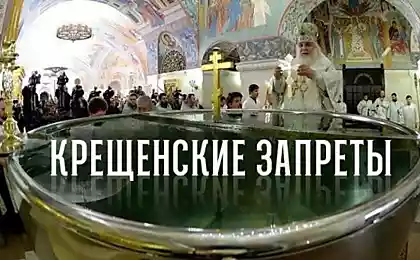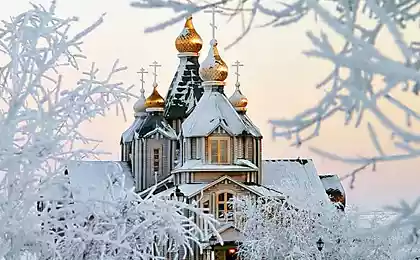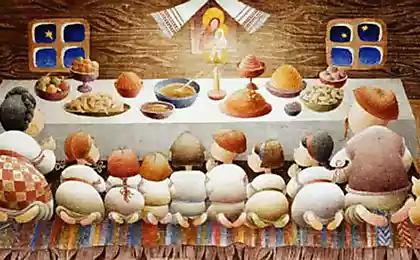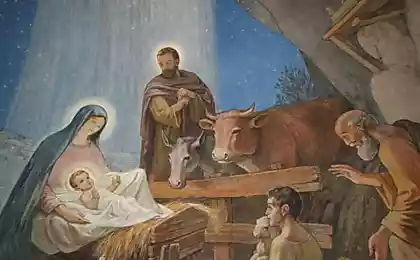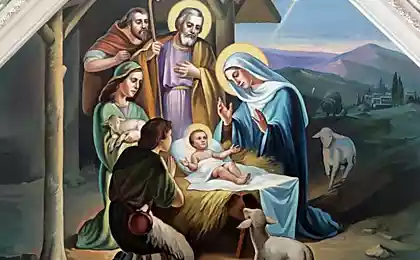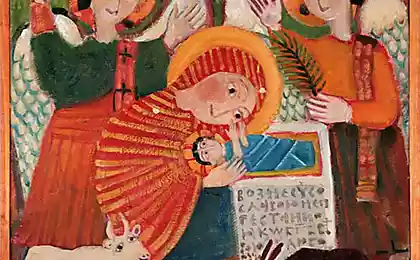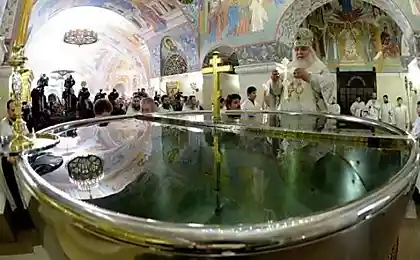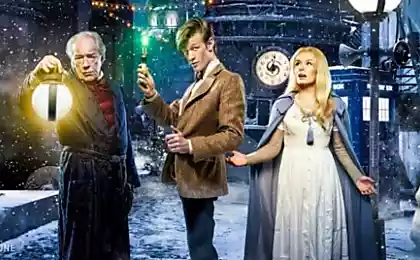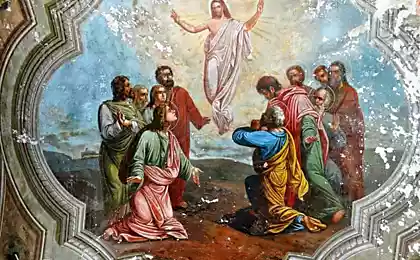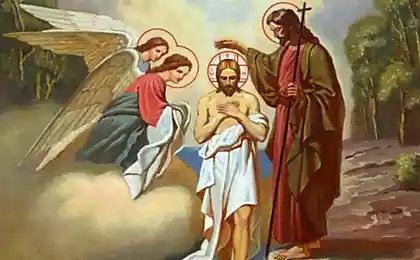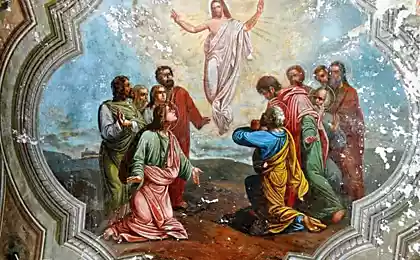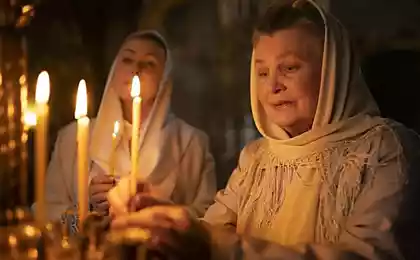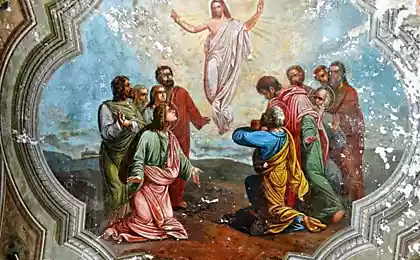215
Christmas Eve and Christmas – Answers to Questions
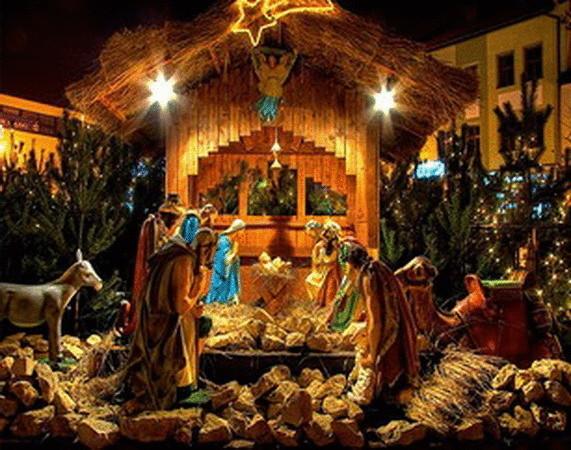
January 6 – The Eve of the Nativity of Christ, or Christmas Eve, is the last day of Christmas fasting, the eve of the Nativity of Christ. On this day, Orthodox Christians are especially preparing for the coming holiday, the whole day is filled with a special festive mood. In the morning on Christmas Eve at the end of the Liturgy and the following evening in the center of the church, a candle is carried out and the priests sing before it the troparion of the Nativity of Christ. The services and post of Christmas Eve have a number of features, so it is these days that many questions about how to spend Christmas Eve correctly come to our site. We asked Archpriest Alexander Ilyashenko to answer these questions. – Father Alexander, the most frequently asked question by our readers is how to fast correctly on Christmas Eve, until what time should you refrain from eating food? What does it mean to fast to the first star? Is abstinence the same for workers and non-workers on this day? How long is the fast before communion? In 2013, Christmas Eve falls on a Saturday, so the Royal Hour is celebrated on Friday. On the very day of Christmas Eve, the fast is no longer as strict as on the preceding days of the strictest week of Christmas Lent. The name itself is believed to derive from the word "sochivo" (the same as "kolivo" - boiled grains of rice or wheat). To eat “sochivo”, or “kolivo”, is supposed on the eve of the holiday only after the liturgy, which is connected with the evening. Thus, part of Christmas Eve passes in complete indifference. The tradition of not eating the first evening star is associated with the remembrance of the appearance of the star in the East (Matthew 2:2), which announced the birth of Christ, but this tradition is not prescribed by the statute. Indeed, the Tipicon prescribes fasting until the end of the evening. However, the Vespers service is connected with the Liturgy, is served in the morning, so we fast until the moment when a candle is carried out in the center of the temple and a troparion for the Nativity of Christ is sung before the candle. It is obvious that people in the temple fast, many on this day communion. It is good if those who cannot be at the service in the temple, who work, honor this day with a stricter fast. We remember that, according to the Russian proverb “Fed belly to prayer is deaf.” Therefore, a stricter fast prepares us for the coming joy of the holiday. Those who take Communion at the night Liturgy, according to church tradition, eat their last meal at least six hours before the time of Communion, or from about 6 p.m. And here it is not a matter of a specific number of hours, that 6 or 8 hours should be fasted and not a minute less, but that a certain limit is set, a measure of abstinence, which helps us to observe the measure. A lot of questions come from people who cannot observe the Christmas fast, asking what to do? Sick people, of course, should observe Christmas fasting to the extent that it is consistent with medication and the prescriptions of doctors. It is not about putting an infirm person in a hospital, but about strengthening a person spiritually. The disease is already a difficult fast and feat. And here a person must already try to determine the measure of fasting according to his strength. Anything can be reduced to absurdity. For example, imagine that a priest who comes to give communion to a dying person asks when was the last time a person ate? As a rule, believers try to celebrate Christmas at the night festive liturgy. But in many churches, the All-Night and Liturgy are also served at the usual time – 5 p.m. and in the morning. In this regard, it is often asked, is it not a sin for a young man, not weak, without children, to go to the service not at night, but in the morning? To attend the night service or the morning service – it is necessary to watch on your strength. To meet the holiday at night is, of course, a special joy: both spiritual and spiritual. Such services are very few in the year, in most parish churches, night liturgies are served only on Christmas and Easter - especially solemn services are traditionally performed at night. For example, on Athos, Sunday vigils are served at night. And still, there are not so many such services, just over 60 per year. The Church states that, given human capabilities, the number of night vigils per year is limited. Solemn night services contribute to a deeper prayer experience and perception of the holiday. The festive Liturgy is over, the festive feast begins. And here we're asked two questions. First, is it possible to celebrate Christmas first in the parish, and not immediately arrange a family celebration? Of course, it is good to celebrate together with relatives, friends, family, it is good to share the joy given to us in the holiday with our neighbors. If parishioners can unite and, having prayed together in the temple, can sit together at the festive table – this is very good. Such a joint celebration unites, allows you to share joy with each other. Families and friends gather. - The second question is related to the fact that many people take communion at the Christmas Liturgy. And people experience some embarrassment: you have just received communion, in the books of the Holy Fathers it is written that in order to retain grace, you need to try to protect yourself from conversations, especially laughter, and try to spend time after communion in prayer. And here is a festive feast, even with brothers and sisters in Christ. People are afraid of losing their prayer spirit. The rules that the desert fathers offered to the monastics cannot be fully transferred to the worldly life, especially not to transfer them to the great feasts. We are talking about ascetics – ascetics, especially richly endowed with the grace-filled gifts of God. For them, the outer part is secondary. Of course, spiritual life comes first for lay people, but we cannot draw the same clear line between the spiritual and the earthly. The apostle Paul commanded us to “Always rejoice.” Pray constantly. Thank the Lord for all things (1 Thess 5:16-18). If we celebrate the holiday with joy, prayer and gratitude to God, then we fulfill the apostolic covenant. Of course, this issue should be considered individually. Of course, if a person feels that for a noisy celebration he loses his grace-filled mood, then perhaps he should sit down at the table for a while, leave earlier, preserving spiritual joy. Is it not worth distinguishing between ourselves and ourselves two states – when we are really afraid to splash the feeling received in the temple, and when by our refusal to participate in the holiday we can upset our neighbors, and often refuse to share joy with a non-peaceful heart. Relatives reconciled with the fact that their zealous family member flatly refused to meet them with the new year, it would seem that the Christmas fast is over, the person should “return” to the family, share the joy of the holiday together, and he again slams the door and says “What a “sit with us”, I have a great holiday, such grace, I will lose all the prayerful mood with you!!” In this case, a person will hardly hurt his prayer state, since such behavior indicates that a person does not abide in it. The state of contemplation and prayerfulness is always associated with a rush of spiritual joy, grace, which the Lord generously pours out on his slaves. And this attitude towards neighbors is more like hypocrisy and Pharisees. - Is it necessary to attend the evening service on the very day of the holiday - the evening of the Christmas holiday? Everyone has to decide for themselves. After the night service, you need to regain strength. Not everyone, due to age, health and spiritual level, is able to go to the temple and take part in the service. But remember that God rewards every effort that man makes for Him. The evening service on this day is short, especially spiritual, solemn and joyful, the Great Prokimen is proclaimed at it, so, of course, it is good if you can visit it. Congratulations to all readers of our website on the upcoming Christmas! Questions prepared by Lidia Dobrova and Anna Danilova
Source: www.pravmir.ru/rozhdestvenskij-sochelnik-i-rozhdestvo-xristovo-otvety-na-voprosy-2/
Elder paisios of the Holy mountain: No need to justify your passion
Why falling asleep, we experience the sensation of falling

